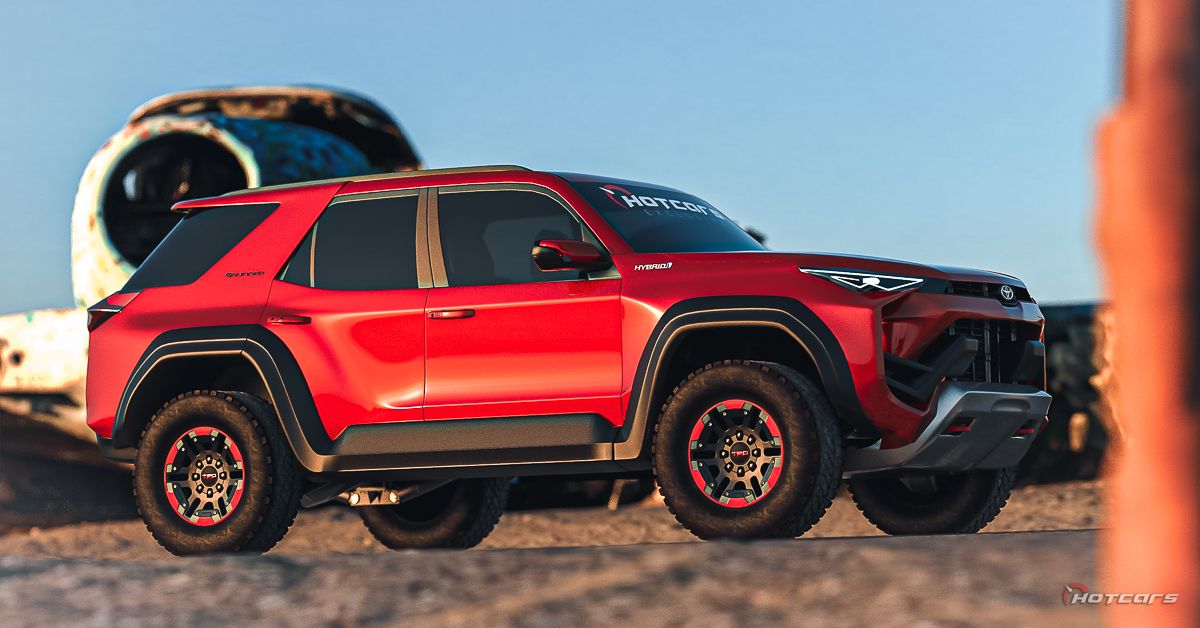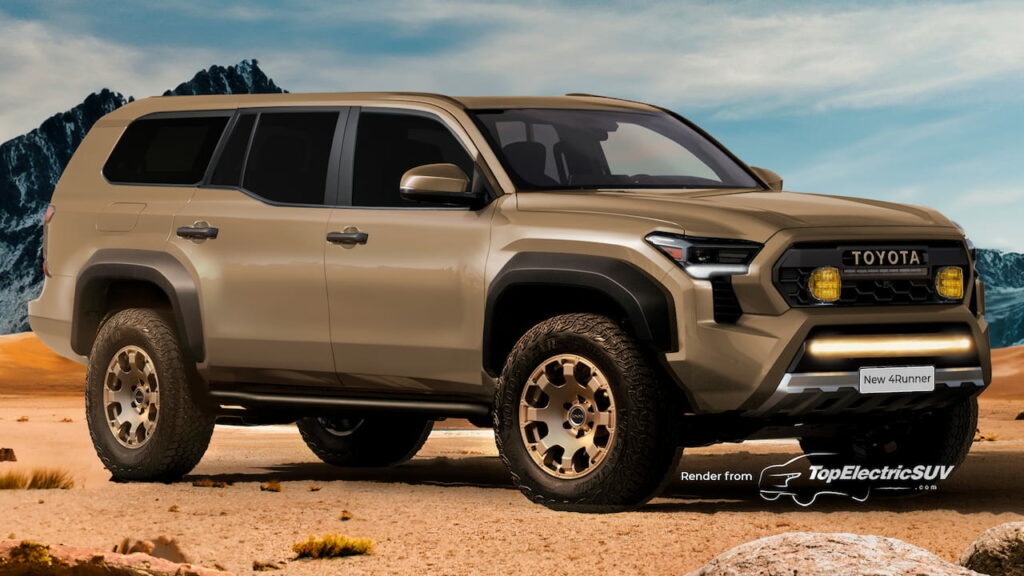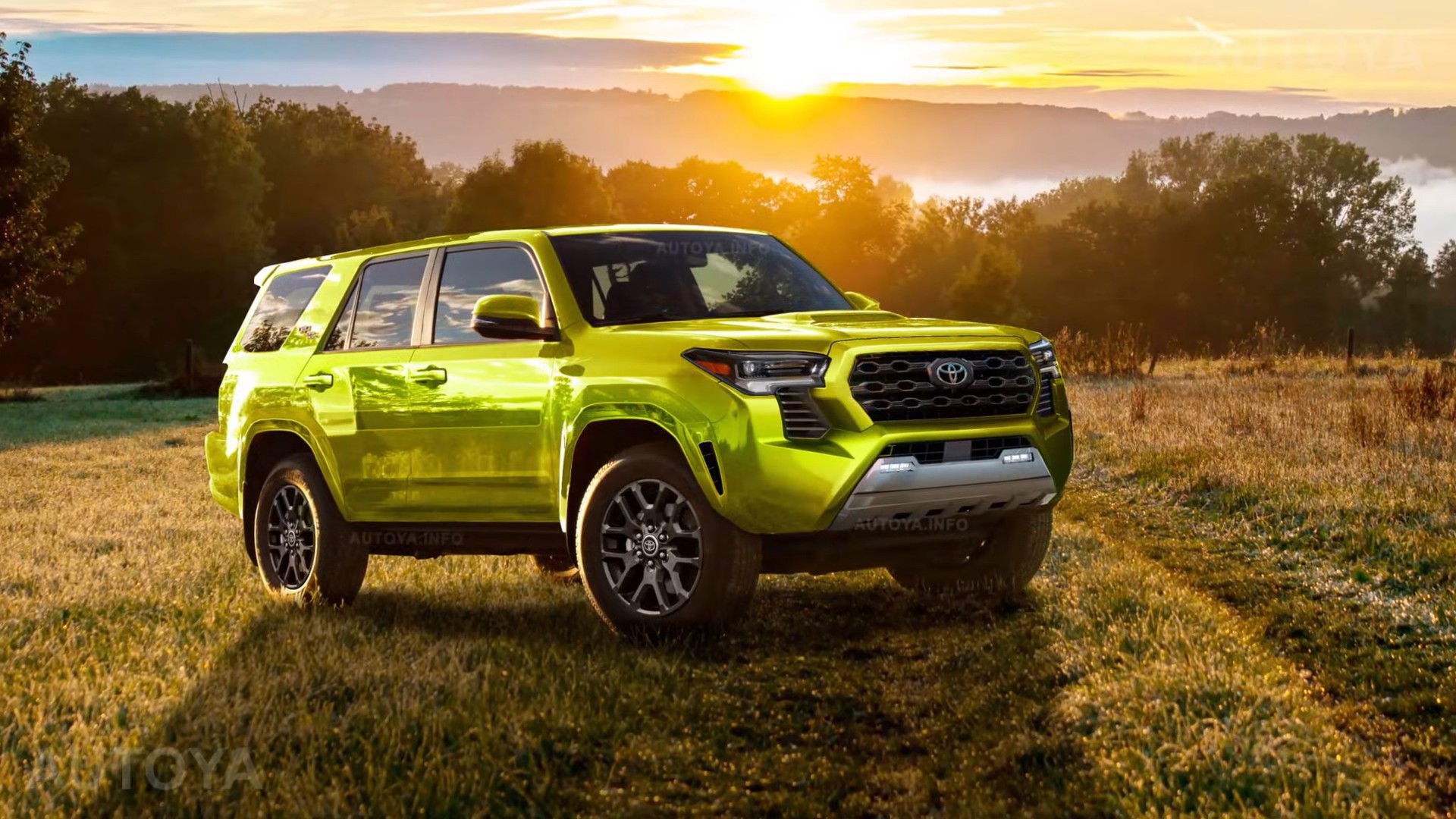Navigating the Future: Exploring the Fuel Efficiency of the 2025 Toyota 4Runner
Related Articles: Navigating the Future: Exploring the Fuel Efficiency of the 2025 Toyota 4Runner
Introduction
With great pleasure, we will explore the intriguing topic related to Navigating the Future: Exploring the Fuel Efficiency of the 2025 Toyota 4Runner. Let’s weave interesting information and offer fresh perspectives to the readers.
Table of Content
Navigating the Future: Exploring the Fuel Efficiency of the 2025 Toyota 4Runner

The Toyota 4Runner, a rugged and capable SUV, has long been a favorite among off-road enthusiasts and families seeking adventure. However, its reputation for fuel economy has lagged behind competitors. As the automotive industry shifts towards more sustainable solutions, the question arises: will the 2025 4Runner see significant improvements in its fuel efficiency?
While Toyota has not officially released details about the 2025 4Runner’s fuel economy, several factors suggest potential changes. The industry’s commitment to reducing emissions and improving fuel efficiency, coupled with the 4Runner’s recent redesign, point towards a future where this beloved SUV might offer better mileage.
Understanding the Dynamics of Fuel Efficiency
Fuel efficiency, a measure of how far a vehicle can travel on a given amount of fuel, is influenced by a multitude of factors. These include:
- Engine Technology: Advancements in engine design, such as direct injection, variable valve timing, and turbocharging, can enhance combustion efficiency, leading to better fuel economy.
- Transmission: Modern transmissions, particularly those with multiple gears, allow the engine to operate at optimal RPMs, reducing fuel consumption.
- Aerodynamics: A vehicle’s shape and design play a significant role in its fuel efficiency. Streamlined bodies with reduced drag coefficients contribute to better mileage.
- Weight Reduction: Lighter vehicles require less energy to move, leading to improved fuel efficiency.
- Hybrid Systems: Integrating hybrid or electric powertrains can significantly reduce fuel consumption, particularly in urban driving conditions.
Potential Fuel Efficiency Enhancements in the 2025 4Runner
While Toyota has not officially announced specifics about the 2025 4Runner’s fuel efficiency, several potential improvements could be implemented:
- Engine Upgrades: The current 4Runner is powered by a V6 engine. Future iterations might feature a smaller displacement engine with increased efficiency, potentially a turbocharged four-cylinder or a hybrid system.
- Transmission Refinement: The 4Runner currently uses a five-speed automatic transmission. A more advanced eight or ten-speed automatic transmission could further enhance fuel economy by optimizing gear ratios.
- Aerodynamic Enhancements: Minor adjustments to the 4Runner’s bodywork, such as a more streamlined grille or underbody panels, could improve aerodynamics and reduce drag.
- Weight Optimization: Utilizing lighter materials, such as aluminum or composites, in specific components could reduce the vehicle’s overall weight, leading to better fuel efficiency.
The Importance of Fuel Efficiency
Fuel efficiency is not merely a technical specification; it holds significant implications for individuals, the environment, and the automotive industry as a whole:
- Reduced Fuel Costs: Improved fuel efficiency translates to lower fuel expenditures for consumers, leading to substantial savings over the lifespan of a vehicle.
- Lower Emissions: By consuming less fuel, vehicles with better fuel economy emit fewer greenhouse gases, contributing to cleaner air and mitigating climate change.
- Increased Range: Enhanced fuel efficiency allows vehicles to travel farther on a single tank of fuel, providing greater flexibility and reducing the need for frequent refueling.
- Competitive Advantage: In a market increasingly focused on sustainability, vehicles with better fuel economy are more appealing to environmentally conscious consumers, giving manufacturers a competitive edge.
Frequently Asked Questions (FAQs) about the 2025 4Runner Fuel Efficiency
Q: Will the 2025 4Runner be a hybrid?
A: While Toyota has not confirmed any specific plans for a hybrid 4Runner, the company’s commitment to electrification suggests it is a possibility. Hybrid technology could significantly enhance fuel efficiency, particularly in urban driving.
Q: How much will the 2025 4Runner’s fuel economy improve?
A: It’s too early to speculate on specific fuel economy figures for the 2025 4Runner. However, given industry trends and the potential for technological advancements, improvements are likely.
Q: Will the 2025 4Runner retain its off-road capabilities?
A: Toyota is unlikely to sacrifice the 4Runner’s off-road prowess for fuel efficiency. The brand has a reputation for building robust vehicles, and the 4Runner is expected to retain its rugged character.
Tips for Enhancing Fuel Efficiency in any 4Runner
- Maintain Proper Tire Pressure: Underinflated tires increase rolling resistance, reducing fuel efficiency. Regularly check and adjust tire pressure to the manufacturer’s specifications.
- Avoid Aggressive Acceleration and Braking: Smooth acceleration and gentle braking reduce fuel consumption. Anticipate traffic conditions and avoid sudden maneuvers.
- Minimize Unnecessary Weight: Remove any unnecessary items from the vehicle to reduce its overall weight and improve fuel efficiency.
- Optimize Engine Performance: Regularly service the engine and ensure it is running efficiently. Replace air filters and spark plugs as recommended by the manufacturer.
- Consider Eco-Driving Techniques: Implement eco-driving techniques, such as coasting to a stop and using engine braking, to maximize fuel efficiency.
Conclusion
The 2025 Toyota 4Runner’s fuel efficiency remains a subject of speculation. However, the industry’s commitment to sustainability and Toyota’s track record of innovation suggest that improvements are likely. By incorporating advancements in engine technology, transmission design, aerodynamics, and weight optimization, the 4Runner could achieve a more favorable fuel economy without compromising its rugged character. As consumers increasingly prioritize fuel efficiency, the 2025 4Runner’s success will likely hinge on its ability to balance performance, capability, and sustainability.








Closure
Thus, we hope this article has provided valuable insights into Navigating the Future: Exploring the Fuel Efficiency of the 2025 Toyota 4Runner. We appreciate your attention to our article. See you in our next article!
